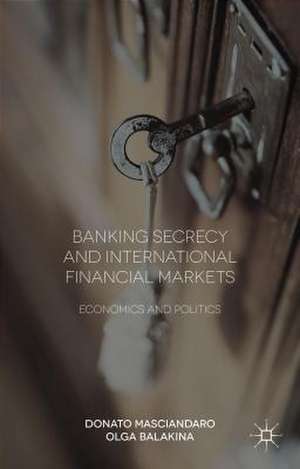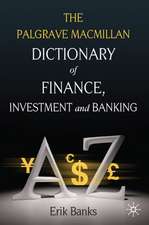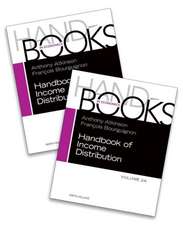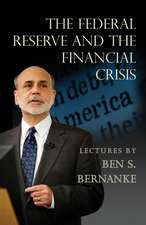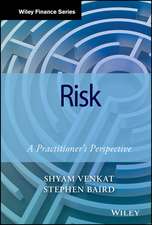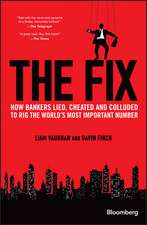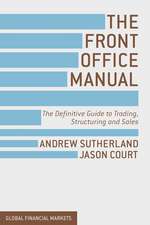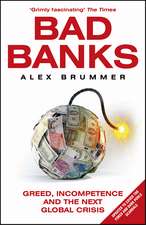Banking Secrecy and Global Finance: Economic and Political Issues
Autor Donato Masciandaro, Olga Balakinaen Limba Engleză Hardback – 5 aug 2015
Preț: 643.00 lei
Preț vechi: 756.47 lei
-15% Nou
Puncte Express: 965
Preț estimativ în valută:
123.04€ • 129.05$ • 102.43£
123.04€ • 129.05$ • 102.43£
Carte tipărită la comandă
Livrare economică 01-15 aprilie
Preluare comenzi: 021 569.72.76
Specificații
ISBN-13: 9781137400093
ISBN-10: 1137400099
Pagini: 296
Ilustrații: X, 283 p.
Dimensiuni: 140 x 216 x 18 mm
Greutate: 0.49 kg
Ediția:1st ed. 2015
Editura: Palgrave Macmillan UK
Colecția Palgrave Macmillan
Locul publicării:London, United Kingdom
ISBN-10: 1137400099
Pagini: 296
Ilustrații: X, 283 p.
Dimensiuni: 140 x 216 x 18 mm
Greutate: 0.49 kg
Ediția:1st ed. 2015
Editura: Palgrave Macmillan UK
Colecția Palgrave Macmillan
Locul publicării:London, United Kingdom
Cuprins
PREFACE
INTRODUCTION
1. Is The Era of Banking Secrecy Over?
2. Banking Secrecy: Economics and Politics
3. Banking Secrecy, Regulation and Supervision
4. Banking Secrecy and International Financial Markets
5. Acknowledgements
PART ONE: BANKING SECRECY: ECONOMICS AND POLITICS
1. Introduction
2. Banking Secrecy: Microeconomics
3. Banking Secrecy: Empirics
4. Banking Secrecy: White Macroeconomics
5. Banking Secrecy: Black Macroeconomics
6. Secrecy and Black Economy: Empirics
7. Banking Secrecy: Grey Macroeconomics
8. References and Tables
PART TWO: BANKING SECRECY, REGULATION AND SUPERVISION
9. Introduction
10. Secrecy and the Specialness of Banking
11. Combating Secrecy: Information and Incentive
12. Combating Secrecy: The Relevant Players
13. Combating Secrecy: A Field Experiment
14. The Financial Intelligence Unit: Economics and Politics
14.1 Economics
14.2 Politics
15 Financial Intelligence Units: Institutional Models
16 FIUs, Supervisory Architectures and Central Banking
16.1 The Cycle in Financial Supervision : Consolidation Cycle and the FIUs
16.2 The Cycle in Central Bank Involvement in Supervision and the FIUs
16.3 Supervisory Governance and the FIUs
17 The Future of THE FIUs: The Role of September Eleven
18 References
PART THREE: BANKING SECRECY AND INTERNATIONAL FINANCIAL MARKETS
19 Introduction
20 Capital Flows and National Regulation: The Lucas Paradox
21 Explaining the Paradox
22 Testing the Paradox
22.1 Which Drivers Do Matter?
22.2 Institutional Quality: One More Step
23 Behind the Lucas Paradox: Banking Secrecy, Soft Regulation and Capital Flows
24 New Frontiers against Banking Secrecy: The Beggar Thy Neighbour Regulation
25 References
APPENDIX: FINANCIAL INTELLIGENCE UNITS IN THE WORLD
1. Introduction
2. Financial Intelligence Units: Nature and Governance
INTRODUCTION
1. Is The Era of Banking Secrecy Over?
2. Banking Secrecy: Economics and Politics
3. Banking Secrecy, Regulation and Supervision
4. Banking Secrecy and International Financial Markets
5. Acknowledgements
PART ONE: BANKING SECRECY: ECONOMICS AND POLITICS
1. Introduction
2. Banking Secrecy: Microeconomics
3. Banking Secrecy: Empirics
4. Banking Secrecy: White Macroeconomics
5. Banking Secrecy: Black Macroeconomics
6. Secrecy and Black Economy: Empirics
7. Banking Secrecy: Grey Macroeconomics
8. References and Tables
PART TWO: BANKING SECRECY, REGULATION AND SUPERVISION
9. Introduction
10. Secrecy and the Specialness of Banking
11. Combating Secrecy: Information and Incentive
12. Combating Secrecy: The Relevant Players
13. Combating Secrecy: A Field Experiment
14. The Financial Intelligence Unit: Economics and Politics
14.1 Economics
14.2 Politics
15 Financial Intelligence Units: Institutional Models
16 FIUs, Supervisory Architectures and Central Banking
16.1 The Cycle in Financial Supervision : Consolidation Cycle and the FIUs
16.2 The Cycle in Central Bank Involvement in Supervision and the FIUs
16.3 Supervisory Governance and the FIUs
17 The Future of THE FIUs: The Role of September Eleven
18 References
PART THREE: BANKING SECRECY AND INTERNATIONAL FINANCIAL MARKETS
19 Introduction
20 Capital Flows and National Regulation: The Lucas Paradox
21 Explaining the Paradox
22 Testing the Paradox
22.1 Which Drivers Do Matter?
22.2 Institutional Quality: One More Step
23 Behind the Lucas Paradox: Banking Secrecy, Soft Regulation and Capital Flows
24 New Frontiers against Banking Secrecy: The Beggar Thy Neighbour Regulation
25 References
APPENDIX: FINANCIAL INTELLIGENCE UNITS IN THE WORLD
1. Introduction
2. Financial Intelligence Units: Nature and Governance
Notă biografică
Donato Masciandaro is Full Professor of Economics, holding the Chair in Economics of Financial Regulation, at Bocconi University, Milan. He is Head of the Department of Economics and Director of the Paolo Baffi Centre on Central Banking and Financial Regulation. He served as Visiting Scholar at the International Monetary Fund, as well as Consultant at the Inter-American Development Bank and at the United Nations.
Olga Balakina is a Research Assistant and PhD student in Economics and Finance at the Paolo Baffi Centre on Central Banking and Financial Regulation, Bocconi University, Italy. Her areas of interest include assets pricing, monetary policy, banking regulation and supervision and illegal financial markets.
Olga Balakina is a Research Assistant and PhD student in Economics and Finance at the Paolo Baffi Centre on Central Banking and Financial Regulation, Bocconi University, Italy. Her areas of interest include assets pricing, monetary policy, banking regulation and supervision and illegal financial markets.
